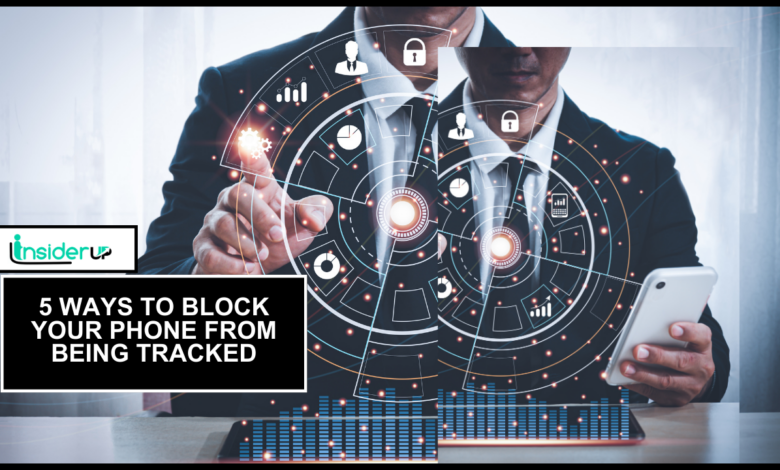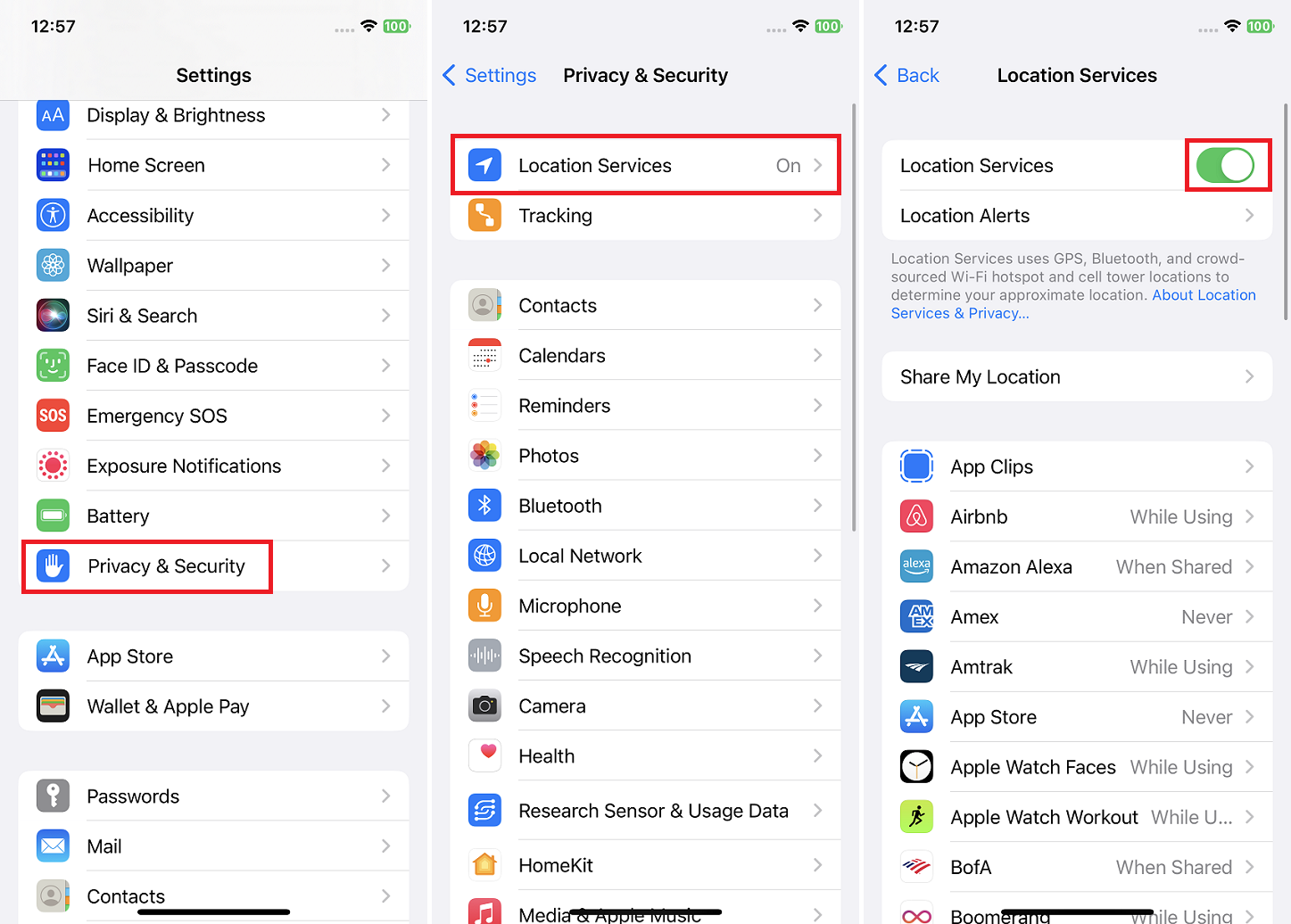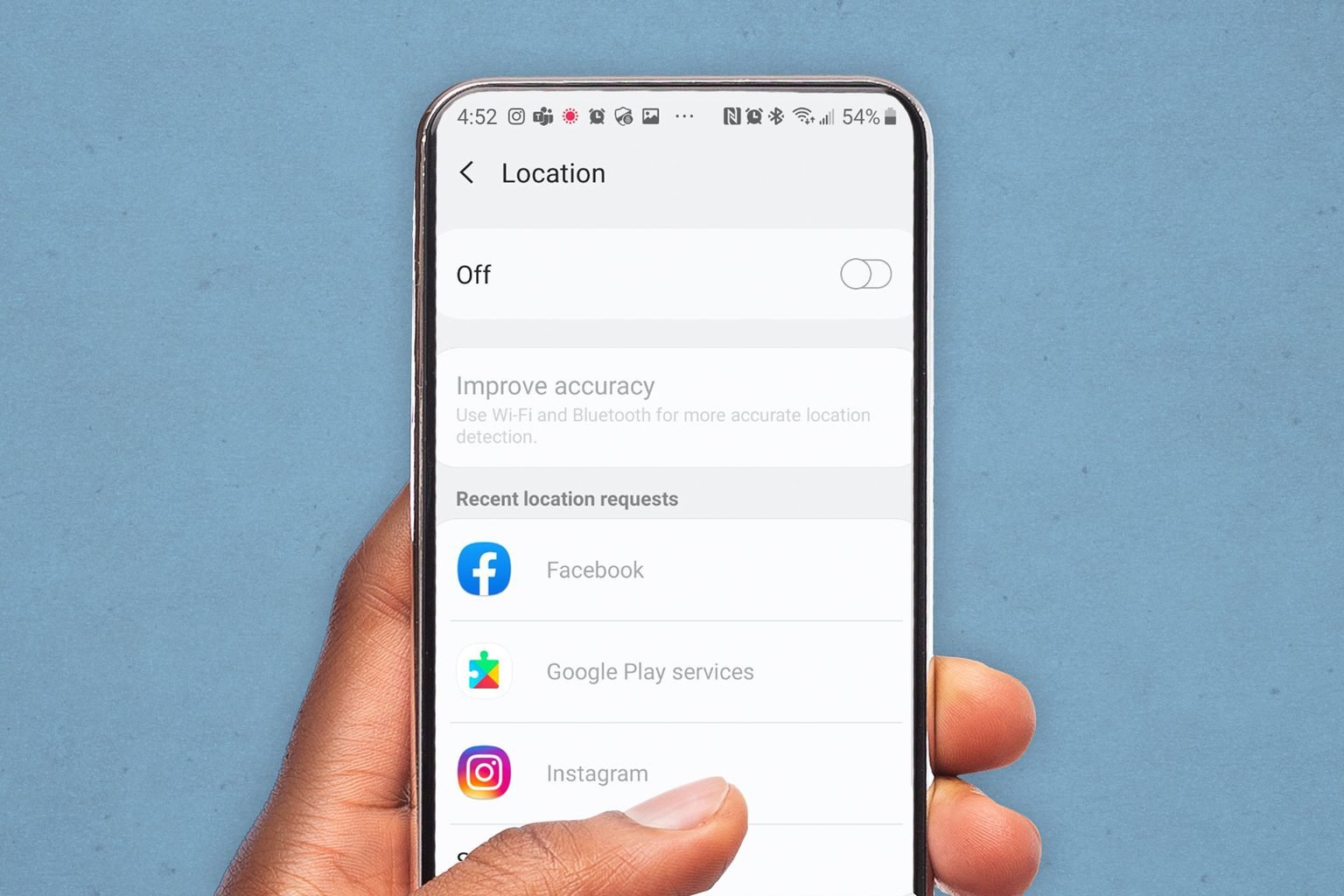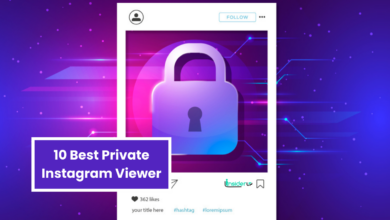5 Ways to Block Your Phone from Being Tracked

Your phone is your life’s open book. It knows every app you use, records every website you visit, and logs your every move. From advertisers hungry for data to law enforcement agencies looking for leads to cybercriminals eager to get their hands on your personal information – everyone’s keen on knowing what’s in your life’s logbook.
However, privacy in today’s digital age is not unattainable. There exist methods that can help block your phone from being tracked. This piece will discuss five such proven ways:
1. Turn off Location Services
Out of the many tracking mechanisms your phone has, location services are one of the most accurate. It triangulates your location using cell tower triangulation, Wi-Fi triangulation, and Bluetooth triangulation and feeds this data to apps that require you to know your whereabouts. Want to pull a cloak over your tracks? Navigate to Settings > Location on your mobile device and switch off location services. Toggle off for all apps or be selective, disabling location for individual apps, as per your comfort.
For iOS devices:
- Go to the home screen and tap on the ‘Settings’ icon.
- Scroll down to the ‘Privacy’ option and tap on it.
- Here, you will find ‘Location Services’ at the top, tap on it.
- You will see the ‘Location Services’ switch at the top. If it is green, that means it’s turned on.
- Toggle the ‘Location Services’ switch to turn them off. A pop-up warns you that some apps might malfunction without Location Services.
- Click ‘Turn Off’ to confirm your action.

Remember, this will stop location services for all apps. But you can also select individual apps from the list below the ‘Location Services’ toggle to control location access.
For Android devices:
The steps can vary slightly depending on the version of Android and the custom skin used by the manufacturer.
- Open the app drawer and go to ‘Settings.’
- Depending on your device and the Android version, you may have to scroll down to ‘Location’ or go through ‘Biometrics and security’ to find the ‘Location’ settings.
- Inside the ‘Location’ settings, you will see the ‘Use location’ switch at the top (In some versions, it may be a slider or a checkbox).
- Toggle the ‘Use Location’ switch off.

Like iOS, Android also lets you control location access for individual apps. You can find this in ‘App Permissions’ inside the ‘Location’ settings.
2. Disable Tracking Cookies
Tracking cookies, these tiny snippets of data deposited by websites on your device, are also major culprits behind compromised privacy. Your browsing habits, overtime preferences, time spent on sites – everything gets logged by these cookies, making them a hot favorite among advertisers. To disable cookies, head into the Settings section of your browser and look for the option to disable tracking cookies.
Disabling tracking cookies is a compelling method to block your phone from being tracked and to maintain your online privacy. Here’s how you do it:
For Android (Google Chrome): Open Chrome, tap on the three-dot menu > Settings > Site settings > Cookies. Here, you can modify your cookies settings or block them entirely.

For iOS (Safari): Go to Settings > Safari. Under ‘Privacy & Security’, toggle off ‘Block All Cookies.’ But do note, some websites might not function properly without cookies.

Besides, consider using private browsers like Firefox Focus or DuckDuckGo, which block third-party cookies by default. Combining these steps with other measures such as using a VPN and disabling location services will significantly enhance your phone’s security. It’s a crucial part of digital privacy, data protection, and personal security.
3. Use a Private Browser
Upgrading to a private browser can also boost your privacy armor since they specialize in blocking tracking cookies and similar snoopy technologies. Popular private browsers include DuckDuckGo Privacy Browser and Brave, both being competent in ensuring your browsing session remains your business.
DuckDuckGo Privacy Browser

DuckDuckGo Privacy Browser stands out as an effective tool to block your phone from being tracked, ensuring that tracking cookies and other privacy-invasive technologies have no place to thrive. The browser is a fortress for digital privacy, offering various features such as private browsing and deletion of search history. Within this secure environment, tracking protection systematically prevents your Internet activity from being tracked or exploited, safeguarding your personal information and providing an umbrella of privacy.
Brave

Brave Browser operates with privacy at its core, making it an ideal option for blocking your phone from undesirable tracking. Brave blocks ads and trackers by default, nudging out intrusive elements. The remarkable privacy features it offers like private browsing, HTTPS Everywhere, and fingerprinting protection work collectively to hamper the efforts of potential trackers. When surfing the Internet on Brave, one can be assured of safeguarded anonymity and minimized tracking risks.
Tor Browser

In the field of anonymous web browsing, Tor Browser rules supreme. By directing your traffic through a network of volunteer relays, it anonymizes your Internet usage, offering robust protection against online tracking. Users advocating privacy can confidently depend on Tor in their quest to block phone tracking. By camouflaging their online activity within its intricate network, Tor ensures users skirt unwanted surveillance.
Firefox Focus

Firefox Focus brings a balanced offering of speed, security, and privacy. Its commitment to safeguarding privacy is underpinned by its default tracking blocker. This serves as a standard line of defense against online trackers, making it an apt pick for those eager to prevent their phone from being tracked. Firefox Focus’s swift and secure browsing experience aids users establishing a guard against online tracking, ensuring their privacy remains undisturbed.
Epic Privacy Browser

Epic Privacy Browser offers comprehensive tools to block your phone from being tracked. It blocks trackers, cookies, and other privacy-compromising technologies as default. A myriad of its other substantial privacy features, such as private browsing, ad blocking, and HTTPS Everywhere, fortify users’ online exposure. With Epic, users can repel tracking attempts, keep their browsing private, and uphold their digital rights.
Waterfox

Waterfox serves as a privacy-oriented rendition of the famous Firefox web browser. For those searching for a secure Firefox-based alternative, Waterfox is a gratifying option for blocking phone-based tracking. By stemming the flow of intrusive trackers and cookies, Waterfox ensures that users experience a more private and secure Internet session, reducing their digital footprint.
LibreWolf
Providing a bolstered Firefox experience, LibreWolf hardens against tracking and telemetry. It puts privacy at the forefront, thereby shunning the factors that might expose users’ data. Users looking to block their phones from potential tracking risks can rely on LibreWolf regarding its refusal to compromise users’ privacy. Its stance on telemetry—information collection and tracking—makes for a secure, private browsing experience, highlighting it as an optimum choice for privacy enthusiasts.
4. Use a VPN
When it comes to making your online presence untraceable, tools don’t get much better than a VPN (Virtual Private Network). By encrypting your internet traffic, a VPN makes it unreadable to anyone who may be snooping. Furthermore, it masks your IP address, vexing any attempts to track your online activity. Both free and paid VPN services are available – choose as per your needs.
Available VPN to use
1. NordVPN

Offering an outstanding combination of performance and security, NordVPN is a well-known name in the VPN landscape. Leveraging advanced technologies like double VPN encryption, Onion Over VPN, and CyberSec, it ensures robust privacy and security of your data.
A no-logs policy means NordVPN doesn’t retain records of your online activity, thereby protecting your digital privacy. With a wide network of over 5000 servers spread across the globe, it offers stable and speedy connections. The Kill Switch feature prevents any data leakage in the event of an unexpected disconnection, adding an extra layer of security. Ease of use and multiple simultaneous connections make it popular among new and experienced VPN users.
2. Surfshark

Surfshark is an impressive VPN service offering a good balance of speed, security, and value for money. This VPN stands out with its unlimited simultaneous connections, meaning you can use it on as many devices as you like. With a strict no-logs policy, Surfshark ensures that your browsing habits stay private.
It’s based on the British Virgin Islands, which is outside the jurisdiction of the ’14 Eyes,’ providing greater security against government surveillance. The Camouflage Mode makes your encrypted data look normal, helping avoid any suspicion or blocking from your internet service provider.
3. ExpressVPN

ExpressVPN is a powerful VPN service that works diligently to protect your personal security and cybersecurity. Whether you’re using an iPhone, a Samsung, or a Huawei device, ExpressVPN has you covered. It offers encrypted connections that guard against cell and Wi-Fi triangulation, and restricts access to your UDID and IMEI numbers.
The provider is globally acclaimed for blocking tracking pixels, thereby empowering users to take control of their digital privacy. ExpressVPN also prevents cross-site tracking, putting a halt to the practices by geolocation-based advertisers. Plus, if you’ve gone the extra mile and installed a custom ROM on your phone, ExpressVPN can certainly complement your privacy-enhancing efforts.
4. CyberGhost

CyberGhost offers robust VPN services, widely recognized for preserving online privacy and digital privacy. It’s a reputable mobile security tool compatible with various platforms including Android, iOS and even custom ROMs. CyberGhost safeguards against threats such as malware, adware, spyware, and data breaches.
The app effectively blocks tracking cookies on your phone and masks your IP address, making it difficult for entities and advertisers to track or profile you. Moreover, CyberGhost anonymizes your geolocation and defends against potential Bluetooth and Wi-Fi triangulation. In a world of complex tracking mechanisms, using CyberGhost can be a significant step towards personal security and anonymity.
5. Private Internet Access (PIA)

Private Internet Access is a VPN that’s highly praised for its commitment to user privacy. PIA works diligently to prevent phone tracking, offering solid defense mechanisms against aggressive analytics tools and web beacons. It effectively blocks tracking cookies and conceals your real IP address, playing a crucial role in online privacy and cybersecurity. PIA also protects against potential data breaches and government surveillance. Whether you’re using your de-Googled Android phone or your Apple device, PIA helps keep invasive third-party trackers at bay, substituting your visible location for an anonymous one, thereby disabling geolocation. Its robust anti-malware and spyware functions keep the digital environment of your phone secure.
5. Be Mindful of App Permissions

Conscientious about what apps you install is another effective strategy for ensuring privacy. Prefer apps from trusted sources, like your phone’s official app store. Examine the permissions the app requests during installation – if a simple notepad app asks for access to your location or contacts, that’s a red flag.
Privacy is not just about blocking trackers but taking proactive steps to protect your digital identity. Going further, consider installing a mobile security app, which can sweep your device for threats such as malware, adware, spyware, and block trackers.
For privacy enthusiasts, a de-Googled phone can be a consideration. These Android devices have been sanitized of all Google’s tracking and advertising software, giving you control over what data stays on your device.
If you’re tech-savvy, give custom ROM a shot. These third-party Android operating systems can help you eliminate tracking and advertising software, improving your phone’s performance, security, and privacy profile.
To conclude, it’s your device and your data – let not anyone else have the right to pry into it. Taking the steps to block your phone from being tracked may seem daunting, but in a world full of prying eyes, it is these steps that ensure your private life remains private.
FAQs
Q 1: What is Location Services and How Do I Turn It Off?
A: Location services allow apps to know your exact location. This feature can be turned off from the Settings > Location menu of your smartphone.
Q 2: Are Custom Roms Safe to Use?
A: Custom ROMs are generally safe if sourced from trusted developers. They often improve phone performance and provide better privacy controls.
Q 3: How Can a Vpn Help Protect My Privacy?
A: VPN stands for Virtual Private Network. It encrypts your data traffic and masks your IP address, making it difficult to track your digital footprints.




